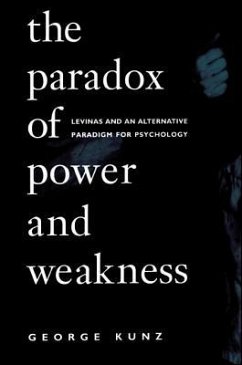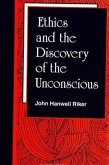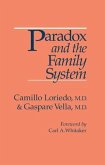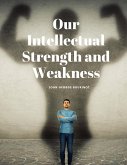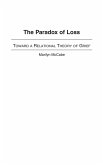The metaethical philosophy of Emmanuel Levinas challenges Western egocentrism by describing the self as egoic yet nevertheless ethically called to transcend its own obsessions, compulsions, and addictions, and to respect and serve others. While power is powerful and weakness is weak, power can sabotage itself, and the weakness of others has power to command our attention and service. Levinas makes distinctions that offer psychology the basis for an alternative paradigm open to paradox. In The Paradox of Power and Weakness, George Kunz shows how the analyses of hagiography, cynicism, and limits on altruistic behavior by radical altruism contribute to this psychology of ethical responsibility for social sciences.
Hinweis: Dieser Artikel kann nur an eine deutsche Lieferadresse ausgeliefert werden.
Hinweis: Dieser Artikel kann nur an eine deutsche Lieferadresse ausgeliefert werden.

